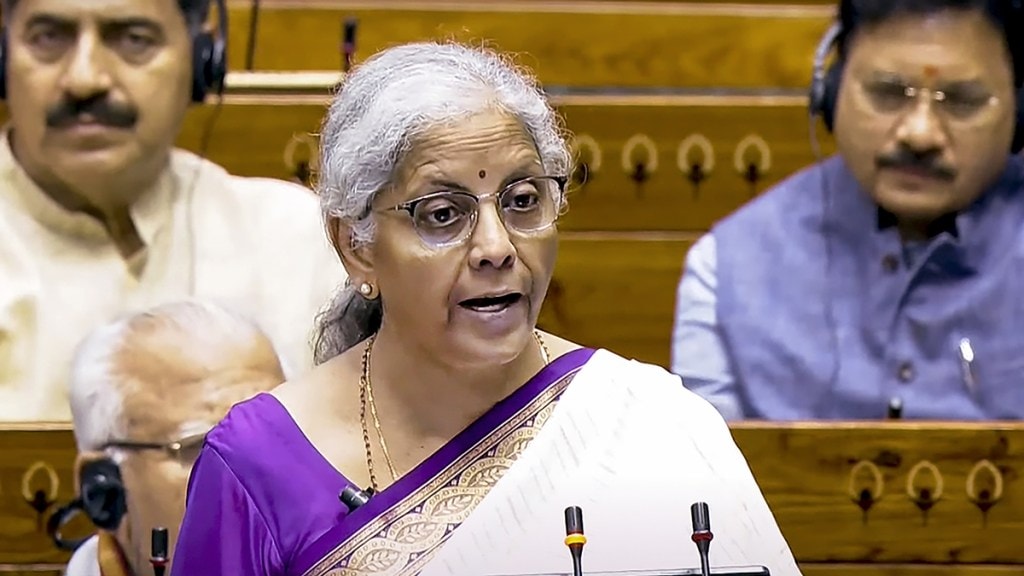By Salman Anees Soz
The best thing I can say about Nirmala Sitharaman’s latest Budget is that it offers the country a sense of continuity. We have heard speeches like her latest one before. There is praise for the government, no account of past commitments, rhetoric of developed India, and virtue signalling of continuity. But that precisely is the problem. Continuity of an economic framework that has kept India in the throes of high unemployment, low personal savings, rising personal debt, and lacklustre private sector investments is not a recipe for prosperity. With India facing monumental challenges like climate change and technological disruption, the NDA government’s Budgets increasingly seem out of step with India’s realities and ambitions. We need a different path.
As with most Budgets, there are aspects to like in this one. I like the idea of decriminalising TDS delays. Anything that decriminalises civil matters is good. I also like the announcement of a review of the Income Tax Act, although we will have to see final product. I like the idea of an Employment-Linked Incentive scheme, something that the Congress Party’s manifesto had promised. The government also announced an internship scheme, although it seems more circumscribed than the version in the Congress manifesto.
The lowering of fiscal deficit is in part due to less-than-budgeted spending in key schemes for health insurance, housing, urban development, rural roads, education, etc, all of which serve the less well-off sections of the society. For the most part, however, there is tinkering around the edges with a small tax benefit here and a new spending proposal there.
It is not a remarkable Budget … for the most part.
What is remarkable is that on the big issues that confront the economy, the Budget has little to offer except the usual sweet nothings. On jobs, the issues that matter to the scale of the challenge are about weak private sector investment growth, the poor condition of the MSME sector, and lagging human capital development. The government’s strategy of high public sector investment appears to have run its course. However, as the Economic Survey points out, the private sector has not stepped up to invest and create jobs. Despite a massive tax cut and the quadrupling of corporate profits between 2020 and 2023, private investment has not picked up in a meaningful way.
MSMEs, which are crucial for employment generation, have been particularly hit hard by the pandemic and demonetisation before that. We need small businesses to be strong in order to create opportunities for the hundreds of millions who will need jobs in the future. Many businesses struggle to access credit and sustain operations, and the Production-Linked Incentive scheme seems not to successfully cater to this sector. The struggles of the MSME sector cast a shadow on the broader economy. Despite this, the Budget yet again fails MSMEs.
The Budget is also remarkable for solidifying the approach to taxation that exacerbates economic inequality. In new India, taxation has a new hierarchy. At the top is income tax, which accounts for 19% of overall revenue. GST, which is mostly paid by the bottom 50% of Indians, accounts for 18% of revenue. Corporate tax is now in third place at 17% of revenue. It would have been nice of the finance minister to thank India’s middle- and low-income classes for financing a large part of the government’s Budget. The double whammy of regressive taxation and food price inflation are now a feature of the NDA economy.
Finally, Budgets are also an opportunity to reflect on the future. We know we face grave challenges in climate change and technological disruption. On even days, our cities are getting swamped, and on odd days, they swelter in unbearable heat. There are growing reports of water-stressed areas and catastrophic damage to infrastructure developed thoughtlessly. I was disappointed that the finance minister did not more coherently lay out the challenge and the government’s overall approach to these big issues. References to energy transition and climate-resilient seeds is not going to cut it. Similarly, the government exhibits a lack of seriousness about tech disruption, which offers both opportunities and threats for India. The politics of Bihar and Andhra Pradesh received more attention than India’s climate and tech challenges.
I conclude with what should be our starting point – education and health. While the central government Budget is not the main driver of these key sectors, national-level policies have increasingly infiltrated the domain of states. In the process, the BJP has created a messy human capital environment in India. We wait for the day when a new government will help unleash a progressive human capital revolution in India, playing a supportive role for states and local institutions to create the kind of citizenry that is ready to fully participate in India’s 21st century economy.
Salman Anees Soz
Former World Banker, and a member of the Indian National Congress


